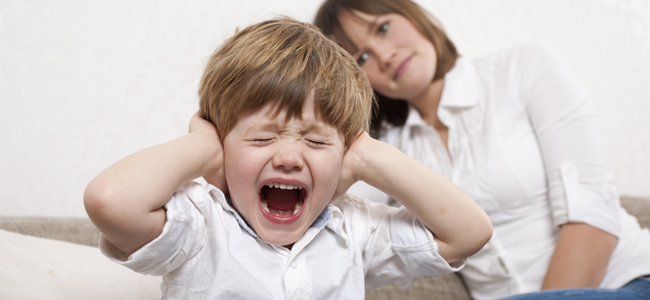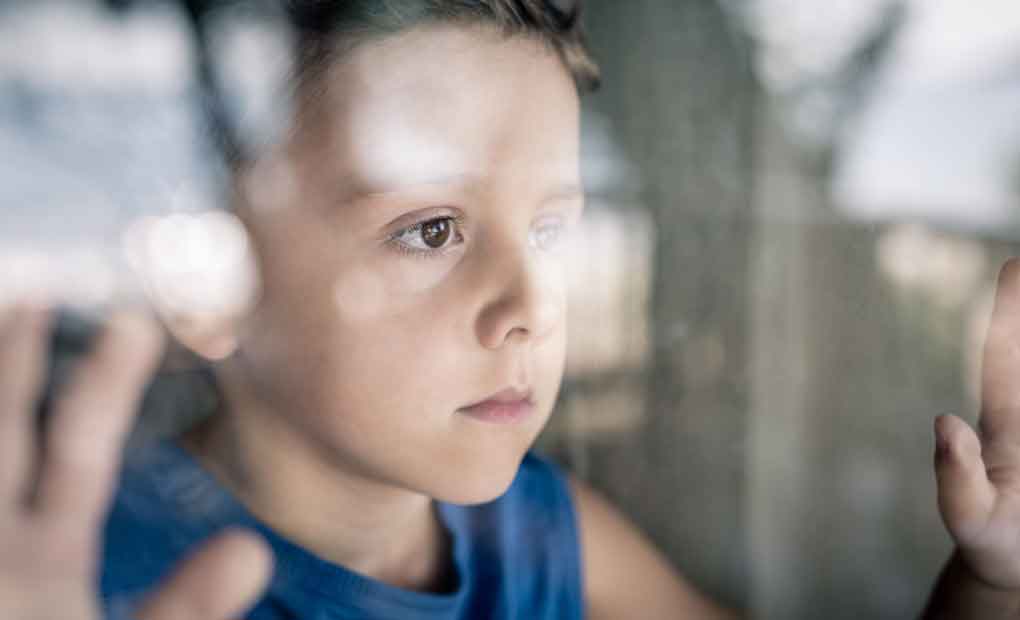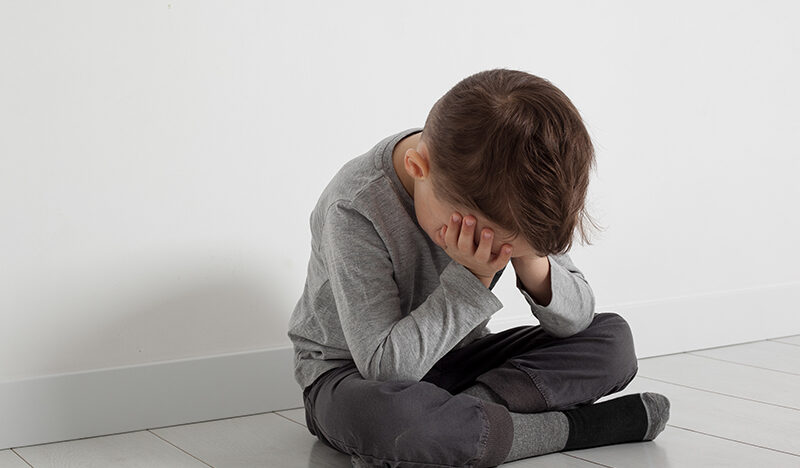
Child frustration can be distressing for both the child and the parents. In today’s fast paced world, understanding the psychology behind why children become upset so often is key to supporting their emotional development. Many parents ask, ‘Why does my child become easily frustrated?’ This article delves into the underlying reasons and offers insights rooted in current psychological research. We will explore developmental milestones, environmental triggers, and practical strategies to help both caregivers and children navigate challenging emotional moments. By the end, you will have a deeper understanding of the causes of frustration and actionable advice that can make a significant difference in your daily family life.
Understanding Child Frustration: Signs and Root Causes
Child frustration is more than just a bout of temper; it is a multifaceted emotional response influenced by various internal and external factors. Parents often notice that their child becomes upset or angry over seemingly minor issues, which can be challenging for everyone involved. Recognizing early signs of frustration—such as crying, clinging, or sudden tantrums—is the first step toward addressing its root causes. Early recognition is crucial for timely intervention and to help protect the child’s long-term emotional health.
Developmental psychology teaches us that frustration is a natural part of growing up. At this stage, learning how to regulate emotions is essential for a child’s development. When frustration arises without a clear cause, it may signal issues like stress, anxiety, or a gap between expectations and reality. This article examines these factors in depth, illustrating how they combine to create an environment ripe for frustration.
Moreover, elements such as basic physiological needs, lack of sleep, or undiagnosed learning difficulties can also contribute to frustration. By observing these behaviors closely, parents and educators can implement strategies that address these triggers before they lead to more serious issues.
Developmental Factors and Stress Triggers in Early Psychological Development
From a psychological perspective, childhood is a time of constant change. During these rapid growth phases, children are naturally more susceptible to frustration as their brains form new connections and adapt to daily challenges. Developmental milestones such as learning to walk, talk, or socialize can trigger frustration when expectations are not met.
In times of transition, such as moving from toddlerhood to early childhood, children face increased demands for self-sufficiency, which might overwhelm their emotional capacities. It is important to remember that frustration is not inherently negative—it is an expression of the challenges involved in adapting to new situations.

Environmental factors also play a role. Changes in routine, overstimulation from screens, or a cluttered living space can heighten stress. Additionally, inconsistent parenting styles and pressure to perform may add extra stress. Experts recommend that caregivers monitor these triggers carefully and adjust their approaches to provide a more balanced, nurturing environment.
Internal vs. External Triggers
Internal triggers often originate from a child’s developmental stage. When faced with tasks beyond their current emotional abilities, children may feel overwhelmed. For example, their limited ability to verbalize feelings can be a significant internal source of frustration. Recognizing these cues enables parents to offer empathetic support during challenging moments.
External triggers include factors such as noisy surroundings or unpredictable schedules. By minimizing these stressors, parents can reduce both the intensity and frequency of frustration episodes.
Impact of Peer Interactions
Peering into the social realm, children are also influenced by the behavior and achievements of their peers. When noticing differences in how they develop compared to others, children can feel inadequate or frustrated.
Creating an environment that honors each child’s unique pace and strengths can help diminish the negative impact of social comparisons. In school settings, emphasizing collaboration over competition can also alleviate stress arising from peer interactions.
Psychological Insights: Why Your Child Frustrates Easily
Delving into child psychology, we find that several factors explain why children become easily frustrated. A primary insight is that young minds are still learning to control their emotions. Their limited experience with processing feelings such as disappointment or confusion can lead to swift mood changes or intense outbursts. Effective emotional regulation is a learned skill that develops over time with guidance and support.
Research combining developmental psychology with behavioral studies reveals the complexity behind these emotional reactions. Neuroscientific evidence shows that the prefrontal cortex, which is responsible for impulse control and problem-solving, is not fully developed in children. This biological fact makes it challenging for them to moderate their responses to stress.
Furthermore, children often lack the vocabulary or conceptual framework to express their internal experiences verbally, which may result in physical manifestations of frustration like yelling or hitting. A blend of genetic predispositions, environmental influences, and social learning contributes to how a child manages negative emotions. Recognizing that frustration is a normal part of psychological growth can help parents respond more calmly and effectively.

Emotional Regulation and Brain Development
The gradual development of the brain, especially the areas in charge of impulse control, explains why children often react impulsively to stressors. Studies show that interventions aimed at enhancing self-regulation can yield notable improvements over time.
Parents play a critical role in this process. By modeling calm behavior, maintaining open discussions about emotions, and ensuring that children feel safe to express themselves, parents not only boost emotional intelligence but also strengthen the parent-child relationship.
The Role of Cognitive Appraisal
How a child interprets their surroundings—known as cognitive appraisal—significantly influences their emotional responses. Limited experiences may cause children to perceive challenges as more overwhelming than they really are, intensifying feelings of frustration.
Through guided conversations and age-appropriate discussions, parents can help children develop a more balanced understanding of their emotions. Encouraging children to identify and name their feelings is a key step towards effective emotional management.
Role of Parenting: Techniques and Environmental Influences
Parenting profoundly impacts a child’s emotional well-being. A nurturing home environment, positive interactions, and effective parenting techniques can greatly reduce a child’s tendency to become frustrated. Parents who create calm, structured routines often see a significant decrease in temper tantrums. Consistency and empathy are essential for teaching children valuable coping skills.
Adopting a balanced approach is key: validate the child’s feelings while setting clear, reasonable boundaries. This method reduces stress and anxiety, both of which are common triggers for outbursts. The ways in which parents interact with their children lay the foundation for how children will manage emotions as they grow.

Moreover, parental modeling is critical. When children see adults managing stress with calmness and rationality, they are more likely to emulate those behaviors. Experts emphasize that maintaining consistent routines, employing gentle discipline, and using positive reinforcement can help create a predictable environment that fosters confidence and emotional balance.
Creating a Supportive Home Environment
A warm, stable home environment is ideal for teaching children effective emotional management. This involves establishing regular routines, keeping open lines of communication, and ensuring that the child feels heard and appreciated.
In such settings, setbacks become learning opportunities rather than disruptive triggers, enabling children to gradually develop better emotional control.
Parental Techniques for Emotional Coaching
Emotional coaching means guiding children to understand and label their emotions. Techniques like reflective listening and using calm, reassuring language during conflicts have proven effective in reducing frustration.
At the same time, realistic expectations and recognizing small achievements help build a child’s self-esteem and support their progress toward emotional maturity.
Practical Advice and Expert Recommendations for Managing Frustration
Combining theory with practice, experts recommend a range of practical techniques to help reduce frustration in children. Strategies such as mindfulness exercises, daily routines, and structured problem-solving sessions provide immediate relief while promoting long-term emotional resilience. Consistent application of these techniques can transform challenging moments into growth opportunities.
Child psychologists emphasize the importance of first validating a child’s emotional experience. Acknowledging how overwhelming feelings can be and guiding children through calming exercises like deep breathing are proven strategies. Allowing children to express what is bothering them creates a basis for both understanding and resolution.
Even in busy daily life, integrating small habits—like a brief reflection session or a designated ‘quiet time’—can greatly decrease stress levels. If frustration begins to interfere with academic or social performance, seeking advice from professionals, such as child psychologists or behavioral therapists, might be beneficial.

Incorporating Mindfulness and Relaxation Techniques
Mindfulness has gained recognition for its effectiveness in reducing stress and improving focus. Simple practices such as mindful breathing or guided imagery help center a child’s thoughts, especially during episodes of frustration.
Parents are encouraged to engage in these exercises together with their children, fostering a shared sense of calm. Establishing a regular mindfulness routine not only soothes immediate stress but also builds lifelong coping skills.
When to Seek Professional Help
Sometimes, persistent frustration and anger may signal underlying issues that require professional attention. If emotional outbursts are impacting daily activities or academic performance, consulting a child psychologist or therapist is advisable.
Professional guidance helps tailor strategies to manage these challenges effectively, ensuring that minor behavioral issues do not evolve into major concerns. Early intervention remains key to nurturing long-term emotional stability.
Content Additions: Emerging Trends and Future Implications
Recent research in child psychology is reshaping our understanding of frustration and emotional regulation. An emerging trend is the use of digital tools and interactive applications designed to help children communicate and manage their emotions more effectively. New technological approaches integrated with traditional parenting techniques are making significant strides in this field.
Moreover, contemporary studies highlight the benefits of group therapy sessions for children. These sessions, where kids share experiences and learn collaboratively, not only validate individual emotions but also foster important social skills. This evolving trend underlines the value of merging technology with empathetic, human-centered strategies.

As further research sheds light on the neuroscience behind emotional regulation, we anticipate even more personalized and precise interventions. Advances in cognitive assessments and imaging techniques hold the promise of tailored strategies that can predict and mitigate frustration. Embracing these trends may well redefine how we support children’s emotional growth in the future.
In conclusion, understanding why your child becomes easily frustrated is essential not only for addressing immediate behavioral concerns but also for fostering long-term emotional resilience. Through exploring developmental factors, psychological insights, and parenting techniques, we see that early frustration is a natural element of growth. By applying the expert strategies and recommendations discussed, parents can create a supportive environment that nurtures patience, empathy, and self-regulation. Each child is unique, and by consistently observing, listening, and adapting to their needs, you lay the foundation for their future well-being. The key to progress lies in informed, compassionate action.




